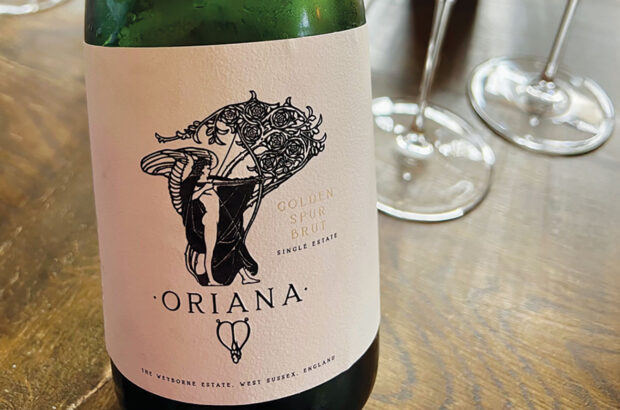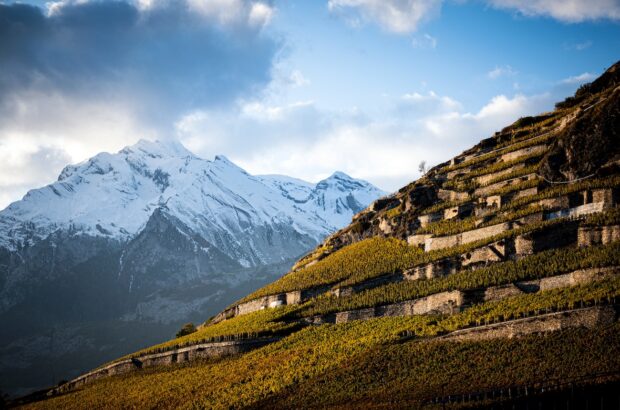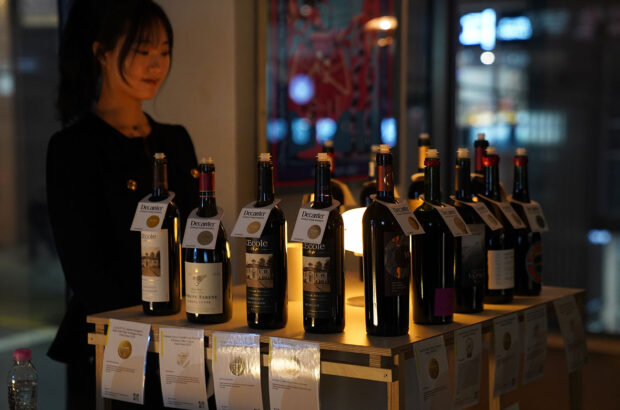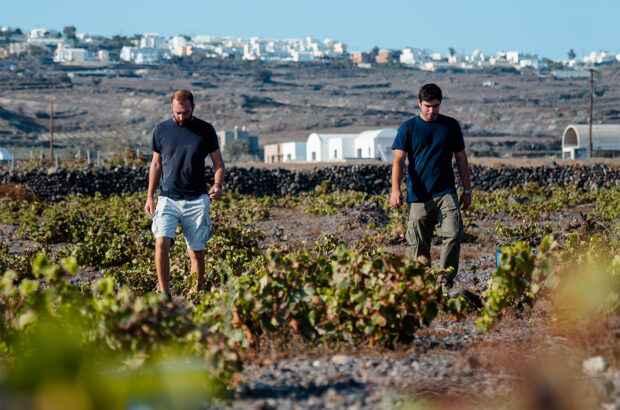Despite being officially retired, Henri Krug will continue to maintain his Champagne's distinctive house style. JOHN STIMPFIG meets the famously shy perfectionist.
Although Henri Krug officially retired as president and cellarmaster of his Champagne house in April last year, you could hardly accuse him of putting his feet up. In fact, they’ve hardly touched the ground after a 12-month, globe-trotting tour to mark his four decades at Krug. Henri has been here, there and everywhere – Reims, London, New York, Paris, Tokyo – attending numerous celebratory auctions, dinners and tastings. And finally, to cap it all, he touches down in Oxfordshire this month for a sell-out Decanter ‘do’ at Le Manoir Aux Quat’ Saisons.
https://www.decanter.com/wine-travel/dover-to-reims-heart-of-the-champagne-region-277878/
‘The whole tour has been a wonderful way of marking 40 years and meeting so many people who share a love of Krug. I suppose it’s a bit like a chef going round the tables at the end of a meal,’ says Henri, in his kindly, quiet and bashful manner. But I can’t help feeling that Henri will be a little bit relieved when all the publicity, glad-handing and speeches are over and he can get back to the tranquillity of Reims and Maison Krug.
This is no great insight on my part. As other writers have commented, despite his warmth and courtesy, Henri Krug isn’t always the easiest person to interview. The wine-loving American novelist Jay McInerney once desribed him as having ‘the serene demeanor of a monk’. And when I first met Henri, he was so unforthcoming that I wasn’t sure if he’d taken a vow of silence. Champagne expert Tom Stevenson says that at times Henri can be shy almost to the point of introversion. He says you need to catch Henri ‘in his tasting room, tasting one to one with someone he knows. He’s still shy and hesitant, but there is nothing he won’t discuss about the wines at such times.’
From now on, the tasting room will probably be one of the best places to find Henri. Having handed his old job on to his brother Remi, Henri’s new ‘retirement’ role will be to act as a hands-on consultant to Krug. ‘I’m looking forward to it enormously as it means I will remain in charge of the tasting and blending as well as looking after our relationships with the growers. These were always the parts of my job I loved the most. So it’s perfect.
‘As president, naturally I was involved in long budget and strategy meetings as well as all the travelling. But it was always the production side that I was most passionate about.’
‘Krug-iste’ aficionados will be mightily relieved to hear that Henri isn’t being pensioned off yet. Not that this was ever on the cards. Family precedent has always demanded that if you’re a Krug, there’s no such thing as retirement. Henri’s father and grandfather both continued to work well into their 90s. Not surprisingly, Henri hopes not just to emulate their attendance records but also to beat them. ‘As long as I can cross the street, I’ll come into work to taste,’ says Henri who, barely into his 60s, still looks full of beans.
It began 40 summers ago in September 1962, after a stint of military service in Algeria. Henri naturally gravitated to the production side of the then family-owned business, while his flamboyant younger brother, Remi (who joined in 1965), quickly developed a remarkable flair for marketing.
It has been an extraordinary fraternal business partnership in spite of (or perhaps because of) their starkly different characters. The contrast between the two brothers is thrown into its sharpest relief at tastings. Whereas the effusive, showman-like Remi rabbits on 10 to the dozen, Henri is quieter and gentler – letting his eloquent wines do the talking.
PERFECTIONIST
But if Remi is the voluble, catherine wheel ‘ideas man’, Henri is endlessly analysing and testing all the angles to see if Remi’s latest suggestion stacks up in practice. ‘There is nothing Henri does, thinks or says that isn’t considered,’ says Serena Sutcliffe MW. ‘He’s a complete perfectionist.’
On one occasion, in 1985, Henri felt that the blend for the Grande Cuvée showed too much vintage character. So he took the radical decision of starting the whole process again from scratch, but still wasn’t happy. Finally, at the third attempt, he was satisfied with the end result. ‘Yes, it was hell to do, but we are never afraid to start again’, says Henri. ‘We never shy away from saying no.’
Given such obsessional perfectionism, it’s little wonder that Remi is Henri’s greatest admirer. Without his elder brother, he would never have been able to turn Krug into the super-expensive, luxury cult brand it has undoubtedly become. ‘What Henri does is pure gold,’ says Remi. ‘If I am the voice and legs of Krug, he is the nose and palate. It is a magical combination.’
It’s tempting to think there is an element of hype and artifice to all this ‘happy families’ image. Not least because Krug has one of the most powerful and successful PR machines in Champagne. However, the fact remains that the brothers and their families have always been incredibly close – even to the extent that they live next door and share a garden. ‘They really are two sides of the same coin,’ says Sutcliffe.
These days though, that coin is no longer owned by the Krug family and hasn’t been since 1969 when it was bought out by Remi Cointreau. Most recently LVMH bought the house in 1999. Yet in spite of the changes in ownership, Krug has continued to preserve its ideals and traditions of quality without interference or compromise. ‘Very little changed. We still set our standards higher and in a different league from all the others.’ According to Henri, this is why Krug is so pricey. ‘It’s because we’re the best!’
In his time, Henri has given birth to 40 Grandes Cuvées and 19 vintages. Of the vintages (which he remembers in great detail) he has many favourites, including the classics of 1962, 1973 and 1988. However, he’s also extremely fond of the ‘eccentric’ years such as 1964 and 1976. ‘But being a good year is not enough for Krug. It has to have character as well,’ he adds.
Perhaps Henri’s greatest winemaking challenge remains the ‘multi-vintage’ Grande Cuvée. ‘Each year I have to create a wine which will be exactly the same in six years’ time as the last Grande Cuvée,’ says Henri. ‘And every time, the component parts are completely different from the previous year. It’s very exciting but a huge responsibility because once you’ve done it, you can’t correct it. You always have to face it six years later.’
Throughout, Henri has managed to preserve the dynastic linear consistency of the Krug style and taste. He says: ‘The most important thing is the balance between the elements of vinosity and elegance. Then, of course, you have the complex bouquet, the explosion of freshness, oxidative richness, body, and the long aftertaste. This is the hallmark of Krug that I’ve tried to maintain.’
He was lucky enough to learn his craft from both his father and grandfather. And the sense of stylistic continuum running through the generations is remarkable. In 1993, Henri recalls a tasting in New York which featured wines from every decade since the 1920s. The first was a magnum of the 1929 and the last two were the 1982 and the Grande Cuvée. ‘Some were made by my grandfather, my father and myself. Everyone agreed that it was a remarkable consistent Krug style all the way through. That made me immensely proud.’
That said, there are those who criticise Krug for being too old fashioned. They might do well to remember that Henri has not been afraid to innovate or move with the times when required. In fact, he has completely altered Krug’s exclusive prestige range of Champagnes.
First he changed the blend of Krug’s famed Private Cuvée and re-named it Grande Cuvée. Then he added the famed Clos de Mesnil to the portfolio. And for his next trick created his ‘complete baby’ – Krug’s Rosé. Most recently, with the LVMH takeover in 1999, he’s been able to combine modern technology with age-old Champenois traditions. ‘People expect the oak barrels we use for fermentation. But a lot of them are also surprised by how high-tech we are.’
https://www.decanter.com/premium/introducing-coteaux-champenois-champagnes-still-wines-421053/
These aren’t the only signs of change. Waiting in the wings is the sixth generation of Krugs in the form of Henri’s son Olivier and Remi’s daughter Caroline. But don’t expect too much tinkering. You can bet your bottom dollar that Henri will be quietly imbuing his protégés with his values of passion, patience and perfectionism. After all, it’s the Krug way of doing things.







